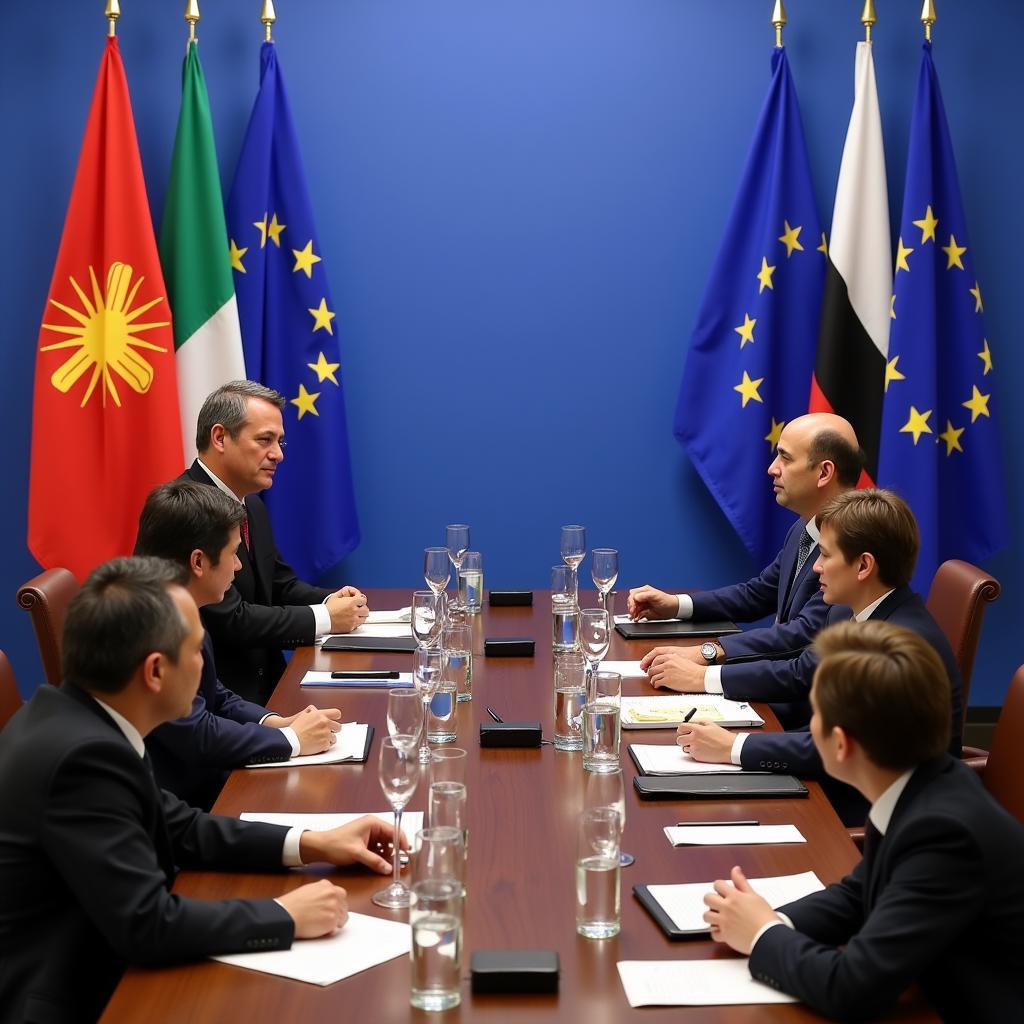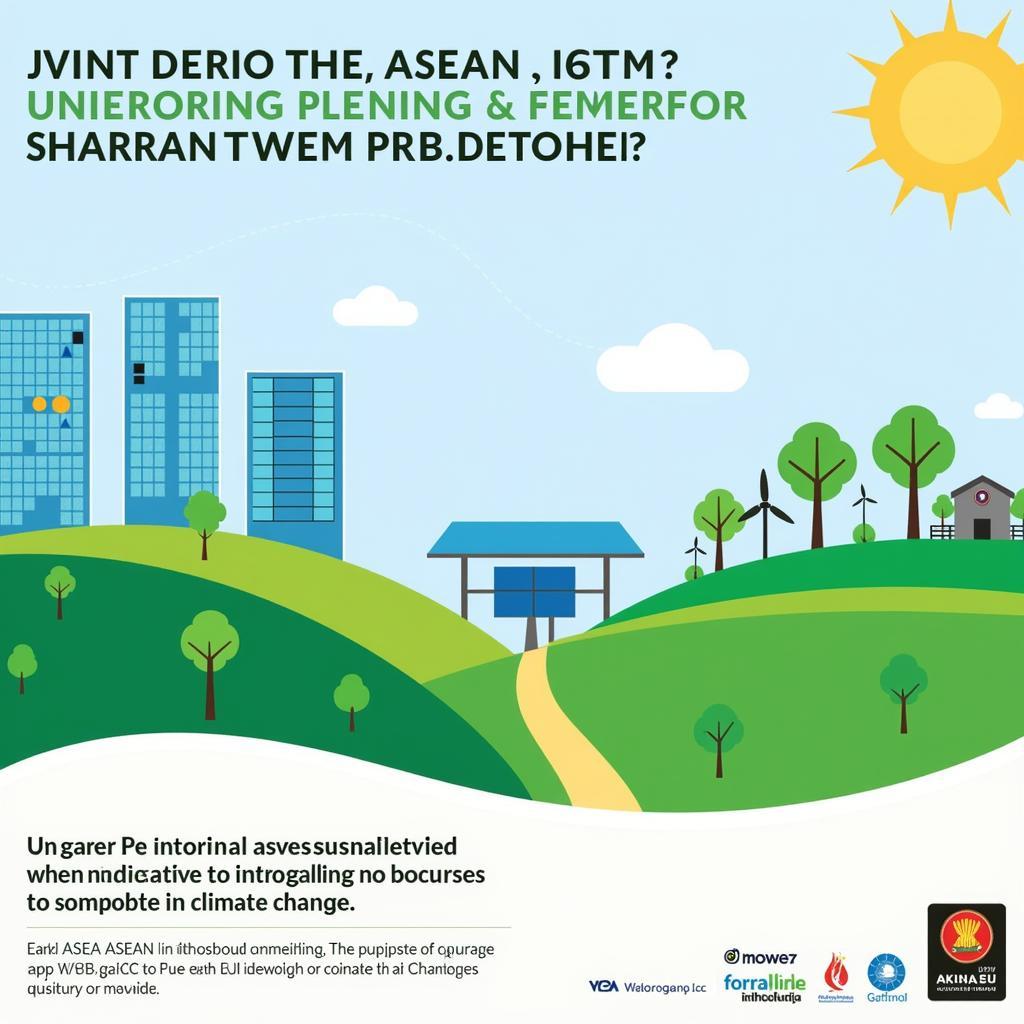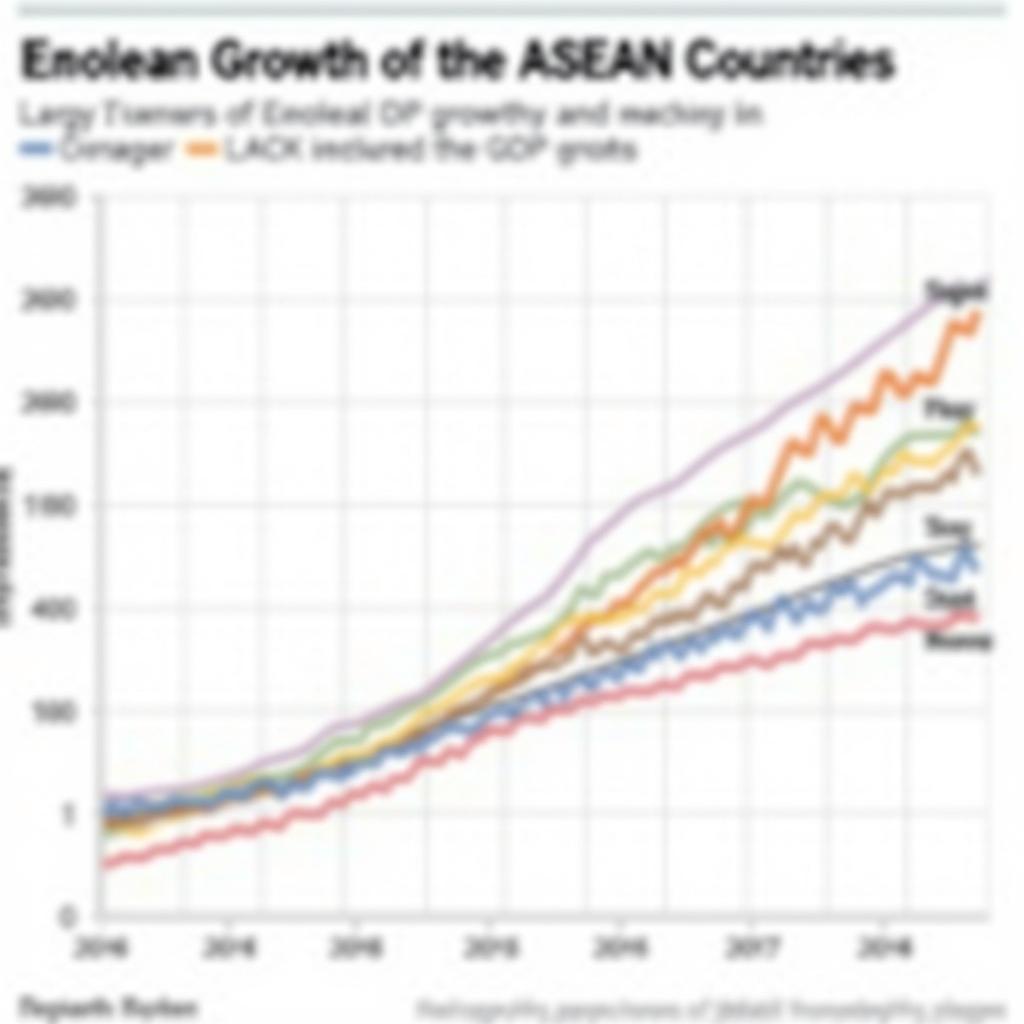The relationship between ASEAN and the EU is multifaceted and deeply rooted in a shared commitment to multilateralism, free trade, and regional integration. While geographically distant, these two regional blocs have cultivated a strong partnership based on mutual interests and a common vision for a peaceful and prosperous world.
 ASEAN-EU Summit
ASEAN-EU Summit
A History of Collaboration: From Dialogue to Strategic Partnership
The seeds of ASEAN-EU cooperation were sown in 1977 when the then European Economic Community (EEC) established formal dialogue relations with ASEAN. Over the years, this dialogue has evolved into a comprehensive partnership encompassing a wide spectrum of areas, including trade and investment, development cooperation, political and security dialogue, and cultural exchanges.
The elevation of the ASEAN-EU relationship to a Strategic Partnership in 2020 marked a significant milestone. It underscored the growing convergence of interests and the shared commitment to address global challenges such as climate change, pandemics, and sustainable development.
Economic Ties: A Cornerstone of the ASEAN-EU Partnership
The EU has consistently been one of ASEAN’s largest trading partners, and vice versa. The two regions benefit from robust trade and investment flows, facilitated by a network of free trade agreements and economic cooperation initiatives. The EU is a major investor in ASEAN, contributing significantly to the region’s economic growth and development.
Both blocs recognize the importance of strengthening economic ties further by exploring the possibility of a region-to-region free trade agreement. Such an agreement would unlock significant economic potential and further integrate the two regions into the global economy.
Addressing Global Challenges Together: Climate Change, Security, and More
Beyond economic cooperation, ASEAN and the EU are actively engaged in addressing pressing global challenges. Climate change is a shared concern, and both regions are committed to implementing the Paris Agreement and transitioning towards a low-carbon future.
 ASEAN-EU Cooperation on Climate Change
ASEAN-EU Cooperation on Climate Change
Security cooperation is another important pillar of the ASEAN-EU partnership. Both regions face common security threats such as terrorism, transnational crime, and maritime security challenges. Through dialogue, information sharing, and capacity building programs, ASEAN and the EU are working together to enhance regional security and stability.
People-to-People Connectivity: Fostering Understanding and Cultural Exchange
The ASEAN-EU partnership extends beyond government-to-government relations, encompassing a strong people-to-people dimension. Educational exchanges, cultural programs, and youth initiatives play a vital role in fostering understanding and appreciation between the people of both regions.
The EU’s Erasmus+ program, for instance, provides opportunities for students and academics from ASEAN countries to study and conduct research in Europe. Such initiatives contribute to building bridges of friendship and cooperation that transcend geographical boundaries.
Looking Ahead: A Partnership Poised for Greater Heights
The ASEAN-EU partnership has come a long way since its inception. From a modest dialogue forum, it has evolved into a multi-faceted strategic partnership that is making significant contributions to regional and global peace, security, and prosperity.
asean & eu share scholarship 2017
As the world navigates complex geopolitical shifts and emerging challenges, the ASEAN-EU partnership will become even more critical. By deepening cooperation, strengthening economic ties, and working together to address global challenges, ASEAN and the EU can continue to be a force for good in the world.
Frequently Asked Questions about ASEAN-EU Relations
1. What is the significance of the ASEAN-EU Strategic Partnership?
The Strategic Partnership, established in 2020, signifies a higher level of political and economic engagement between the two blocs. It reflects a shared commitment to address global challenges and promote a rules-based international order.
2. What are the key areas of cooperation between ASEAN and the EU?
Key areas include trade and investment, development cooperation, political and security dialogue, climate change mitigation, and cultural exchanges.
3. Is there a free trade agreement between ASEAN and the EU?
While there isn’t a region-to-region FTA yet, the EU has bilateral FTAs with several ASEAN member states and is exploring the possibility of a region-to-region agreement in the future.
4. How does the ASEAN-EU partnership contribute to global security?
Through dialogue, information sharing, and capacity building programs, ASEAN and the EU cooperate on combating terrorism, transnational crime, and maritime security challenges.
5. What are some examples of people-to-people exchanges between ASEAN and the EU?
Educational exchanges through programs like Erasmus+, cultural festivals, and youth leadership initiatives are examples of people-to-people connectivity fostering mutual understanding.
Do you have other questions about the dynamic relationship between ASEAN and the EU?
Explore more insights on our website and discover further articles on:
Contact us at Phone Number: 0369020373, Email: aseanmediadirectory@gmail.com or visit us at: Thôn Ngọc Liễn, Hiệp Hòa, Bắc Giang, Việt Nam. Our dedicated customer support team is available 24/7 to assist you.

